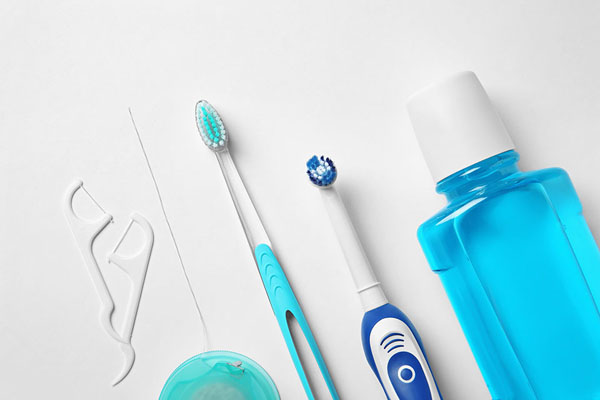Why Professional Treatment Matters
In today's DIY culture, many people are turning to home remedies and do-it-yourself solutions for various health and beauty needs, including dental care. From homemade toothpaste to DIY teeth whitening kits, the internet is full of advice and tutorials that promise quick and affordable results.
However, when it comes to dental care, the risks can far outweigh the benefits. Our Madison dentist and our team aim to educate readers on the potential dangers of DIY dental care and emphasize the importance of professional dental treatment. For questions or to schedule an appointment, call us at (256) 801-0776.
What is DIY Dental Care?
DIY dental care refers to at-home dental treatments and remedies that individuals perform without the supervision or guidance of a dental professional. Common examples include creating homemade toothpaste, using over-the-counter teeth whitening products, and even attempting to fill cavities with store-bought kits. The rise of DIY dental trends can be attributed to the desire for cost-effective solutions, convenience, and the influence of social media.
Common DIY Dental Care Practices
Homemade Toothpaste
- Ingredients: Commonly used ingredients include baking soda, coconut oil, essential oils, and activated charcoal.
- Methods: People mix these ingredients to create a paste they believe will clean and whiten their teeth effectively.
- Claims: Proponents claim these mixtures are natural, safe, and just as effective as commercial toothpaste.
Teeth Whitening
- DIY Kits: Available over the counter, these kits often contain whitening strips or gels with varying concentrations of hydrogen peroxide.
- Natural Methods: Popular natural methods include brushing with baking soda, using hydrogen peroxide as a mouthwash, and applying lemon juice or apple cider vinegar.
- Social Media Trends: Influencers often promote these methods, showing seemingly dramatic results in a short period.
Cavity Filling and Repair
- Over-the-Counter Kits: These kits provide temporary solutions to fill cavities, usually with a putty-like material.
- Temporary Solutions: Some individuals use wax or other materials to cover a cavity until they can see a dentist.
- Online Tutorials: Step-by-step guides and videos are available online, encouraging people to perform these procedures at home.
Risks Associated with DIY Dental Care
Lack of Professional Supervision
Professional dental oversight is crucial for accurate diagnosis and appropriate treatment of dental issues. Without professional guidance, there's a high risk of misdiagnosis and improper treatment, which can worsen the condition.
Damage to Teeth and Gums
DIY dental care can damage your teeth and gums:
- Enamel Erosion: Abrasive materials like baking soda and activated charcoal can erode the enamel, leading to sensitivity and increased risk of cavities.
- Chemical Burns: Improper use of whitening agents such as hydrogen peroxide can cause burns and irritation to the gums and soft tissues.
Ineffective Treatments
Many DIY methods are unable to address underlying issues such as tooth decay, gum disease, or infections. Temporary solutions may mask serious dental problems, delaying necessary professional treatment and leading to more severe complications.
Health Complications
Non-sterile tools and materials used in DIY procedures can introduce bacteria, leading to infections. Unregulated ingredients can cause allergic reactions or adverse effects on oral and overall health.
Professional Alternatives to DIY Dental Care
- Professional Teeth Whitening: Safe and effective methods performed by dental professionals, tailored to the patient's needs.
- Recommended Oral Hygiene Products: Dentists can suggest the best products for maintaining oral health, such as fluoride toothpaste and antibacterial mouthwash.
- Regular Dental Check-ups: Essential for early detection and treatment of dental issues, preventing them from becoming severe.
- Professional Treatments: Comprehensive care for cavities, gum disease, and other dental problems using advanced techniques and sterilized tools.
Educating and Encouraging Safe Practices
- Evaluating Online Advice: Check the credentials of the source and look for scientifically backed information.
- Identifying Credible Sources: Refer to reputable dental organizations, such as the American Dental Association (ADA), for reliable advice.
- Seeking Professional Advice: Always consult a dentist before trying any new dental treatments or remedies.
Schedule Your Dental Check-Up Today!
While the allure of DIY dental care is understandable, the potential risks far outweigh the perceived benefits. Professional dental care is essential for maintaining optimal oral health and preventing serious complications.
If you have any dental concerns or are considering a new dental treatment, schedule a check-up or consultation at Madison Dental Care by contacting us at (256) 801-0776



 As you adjust your skincare and wardrobe for the cooler weather, don't forget to update your oral hygiene routine:
As you adjust your skincare and wardrobe for the cooler weather, don't forget to update your oral hygiene routine: